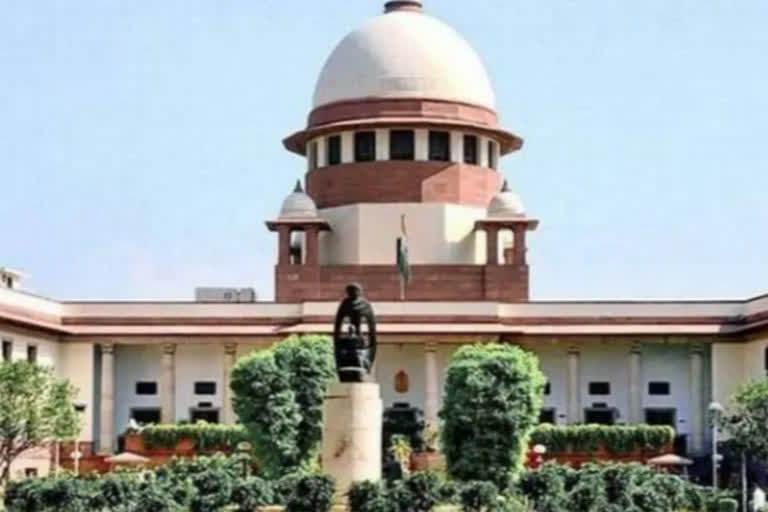New Delhi: The Supreme Court on Friday issued a notice on the petition filed by the National Commission for Protection of Child Rights (NCPCR) challenging the Punjab and Haryana High Court order allowing a Muslim girl to enter into a valid marriage upon attaining puberty. The top court held that the High Court judgment, which held that a Muslim girl aged 15 years can enter into a legal and valid marriage as per personal law, should not be relied on as a precedent in any other case. A bench of Chief Justice DY Chandrachud and Justice PS Narasimha issued notices to the Haryana government and others and appointed senior advocate Rajshekhar Rao as amicus curiae in the matter to assist the court.
"We are inclined to entertain these writ petitions. Issue notice, pending further orders, impugned judgment (of HC) shall not be relied upon as precedent," the bench said. Solicitor General Tushar Mehta submitted that Muslim girls who are 14, 15, and 16 years old are getting married. "Can there be a defence of personal law? Can you plead custom or personal law as a defence against a criminal offence?" he asked.
The age of attaining puberty is 15 years according to applicable personal law in Islam. The High Court had passed the order while hearing a habeas corpus petition filed by a 26-year-old man against the detention of his 16-year-old wife in a children's home in Panchkula. It observed that 15 years is the age of puberty for a Muslim female, and she can on her own willingness and consent marry a person of her choice after attaining puberty. Such a marriage would not be void in terms of Section 12 of the Prohibition of Child Marriage Act 2006, it said.
It is to be noted that the petition filed by the NCW seeking enforcement of uniform marriageable age of 18 years for all women and men across all communities is pending before the top court. Back in December 2022, the same bench comprising CJI Chandrachud and Justice Narasimha sought a response from the Law Commission and the Central government on the matter. The NCW had prayed for a uniform age for marriage irrespective of religion or personal law.
The NCW had contended that under the Indian Christian Marriage Act,1872, Parsi Marriage and Divorce Act 1936, Special Marriage Act 1954, and Hindu Marriage Act 1955, the minimum age of marriage for a man is 21 and for a woman, it is 18, but under Muslim personal law, 15 years, the age of attaining puberty is considered eligible for marriage.



